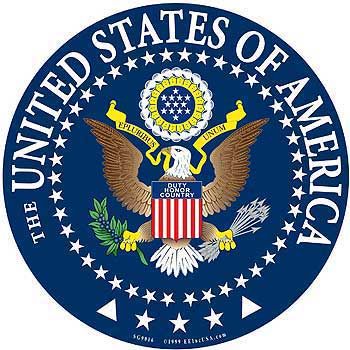Location
Britain's American colonies broke with the mother country in 1776 and were recognized as the new nation of the United States of America following the Treaty of Paris in 1783. During the 19th and 20th centuries, 37 new states were added to the original 13 as the nation expanded across the North American continent and acquired a number of overseas possessions. The two most traumatic experiences in the nation's history were the Civil War (1861-65), in which a northern Union of states defeated a secessionist Confederacy of 11 southern slave states, and the Great Depression of the 1930s, an economic downturn during which about a quarter of the labor force lost its jobs. Buoyed by victories in World Wars I and II and the end of the Cold War in 1991, the US remains the world's most powerful nation state. Since the end of World War II, the economy has achieved relatively steady growth, low unemployment and inflation, and rapid advances in technology.
The United States is a constitutional federal republic.
Source: CIA World Factbook
Members:
Resources
Displaying 6 - 10 of 11Food Security Act of 1985 (7 U.S.C. 2081)
This Act establishes a comprehensive framework within which the Secretary of Agriculture shall administer agriculture and food programs to ensure food security.
Water Code - Division 6: Conservation, Development, and Utilization of State Water Resources - Part 3.5: Fish, Wildlife, and Recreation in Connection With Flood Control and Watershed Protection Projects (secs. 12840 - 12849).
This Chapter of Division 6 of the Water Code of California provides for the preservation and enhancement of the state’s fish and wildlife resources in connection with flood control and watershed protection projects and to realize the full potential of such projects to provide recreational opportunities to the general public.
Fish and Game Code - Chapter 4.3 of Division 2; Inland Wetlands Conservation Program (secs. 1400 - 1431).
This Chapter of Division 2 of the Fish and Game Code of California creates within the Wildlife Conservation Board the Inland Wetlands Conservation Program. The purpose of the Program is to carry out the programs of the Central Valley Habitat Joint Venture. It is designated for use of the funds allocated pursuant to subdivision (f) of Section 2791, as enacted by the California Wildlife Protection Act of 1990. The Board shall administer the Program.
Fish and Game Code - Chapter 4 of Division 2; Department of Fish and Wildlife - Wildlife Conservation Law of 1947 (secs. 1300 - 1375).
This Chapter of Division 2 of the Fish and Game Code of California, known as the Wildlife Conservation Law of 1947, establishes the Wildlife Conservation Board and a single and coordinated program for the acquisition of lands and facilities suitable for recreational purposes, and adaptable for conservation, propagation, and utilization of the fish and game resources of the State. The Chapter sets out conditions and procedures for land acquisition for wildlife purposes.
Zuni River Watershed Act of 1992 (P.L. 102-338).
In the framework of corrective measures required to prevent continued degradation of natural and cultural resources throughout the Zuni Watershed in accordance with the Zuni Land Conservation Act of 1990, a study shall be conducted and a plan prepared by the Soil Conservation Service and Assistant Secretary for Indian Affairs.


